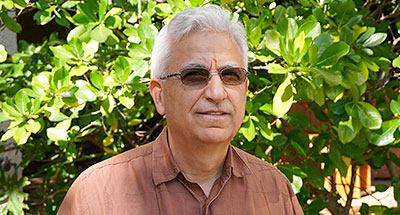Background
I grew up in a politically charged country, where thinking about politics was a necessity for survival, not a mere choice or a preference. However, thinking about politics did not necessarily translate into thinking knowledgeably and ethically about politics. Realizing the significance of such an endeavor, I decided to pursue the study of politics, particularly, international relations, as a vocation in my life. In this life-long commitment, my aim has always been to grow in knowledge in/about politics so that I may write, research, and teach politics ethically responsibly. In my journey as an educator, students, graduate, and undergraduate, constitute the locus of my efforts, for each student represents a universe of experiences from which I learn immensely.
Education
- PhD, Political Science, Arizona State University, 1995
- MAIA, International Affairs, Ohio University, 1990
- MA, Political Science, Ohio University, 1990
- BA, International Relations, Gazi University, 1985
Courses
- POLS 110: Introduction to Political Science
- POLS 120: Introduction to World Politics
- POLS 305: Global Politics/Comparative
- POLS 315: Global Politics/International Relations
- POLS 317: International Law
- POLS 600: Scope and Methods of Political Science
- POLS 630: International Relations
- POLS 640: Comparative Politics
- POLS 730: Seminar: International Relations
- POLS 740: Seminar: Comparative Government and Politics
Research
Stated most generally, my research is guided by an interest in international relations theory and global political and cultural economies. I am especially interested in transnational processes that bear upon the practices and norms of national and international governance and policy-making. Pursuant to these interests, my work examines the changing conceptualizations and practices of state sovereignty. It examines state sovereignty in its contemporary alterations and re- articulations amidst accelerating movements of people, ideas, images, capital, and technologies of production and destruction. In my recent work, I concentrate on migrant and indigenous struggles as insurrectional movements which I take as harbingers of novel modes of political agency in the world.

